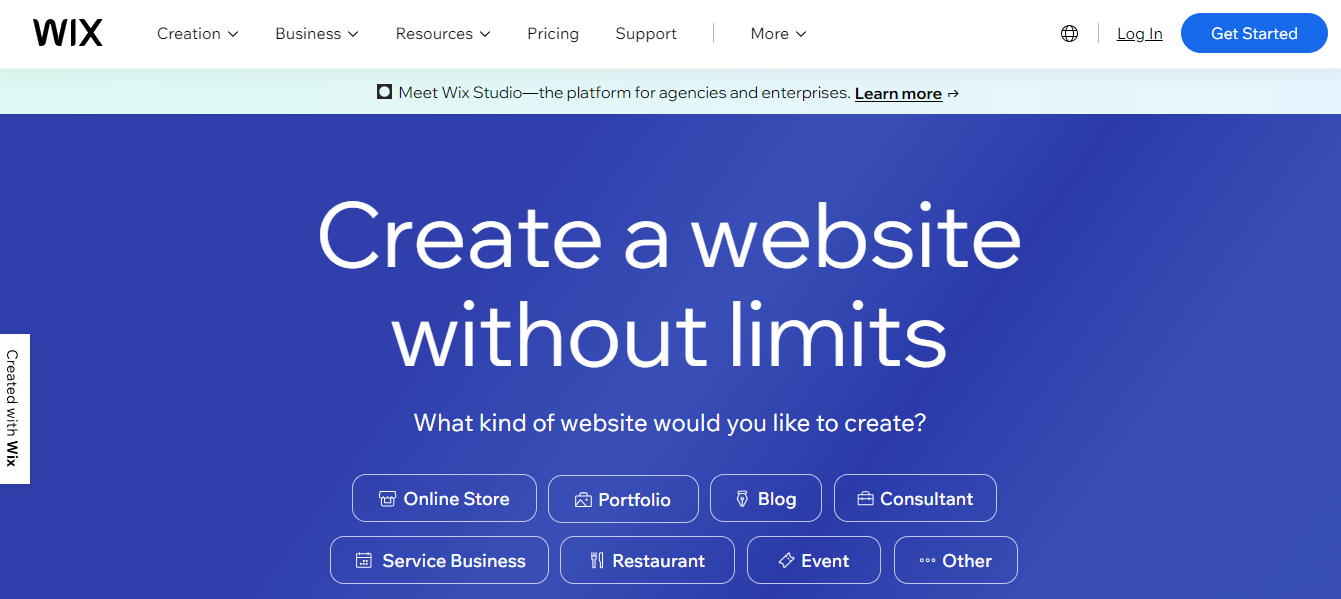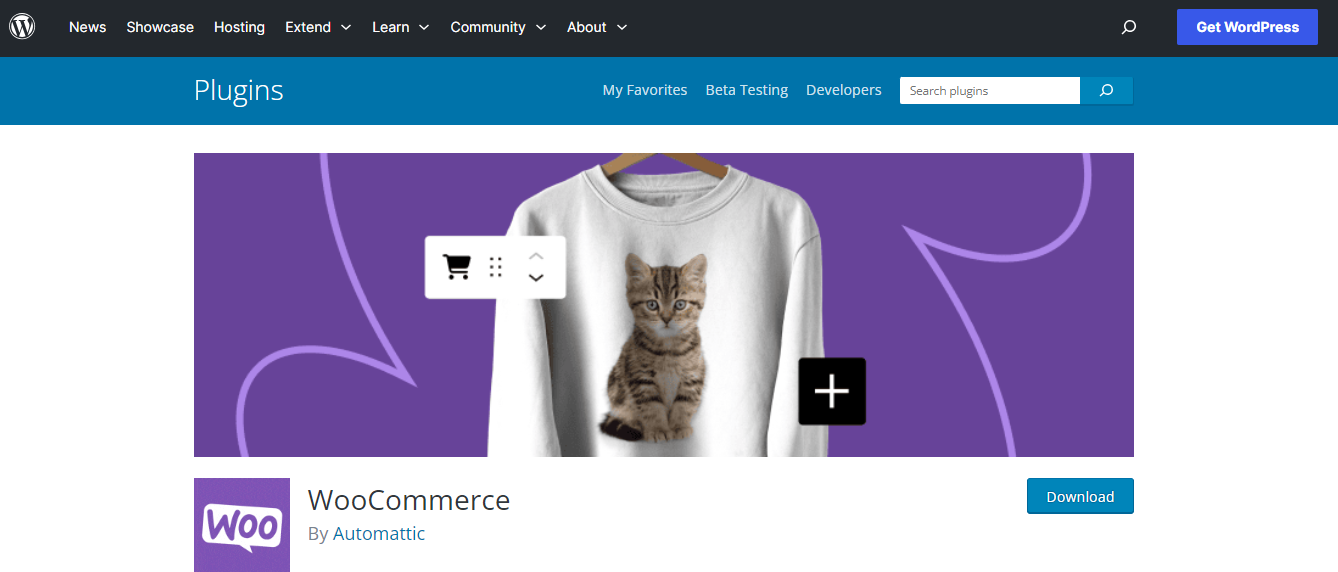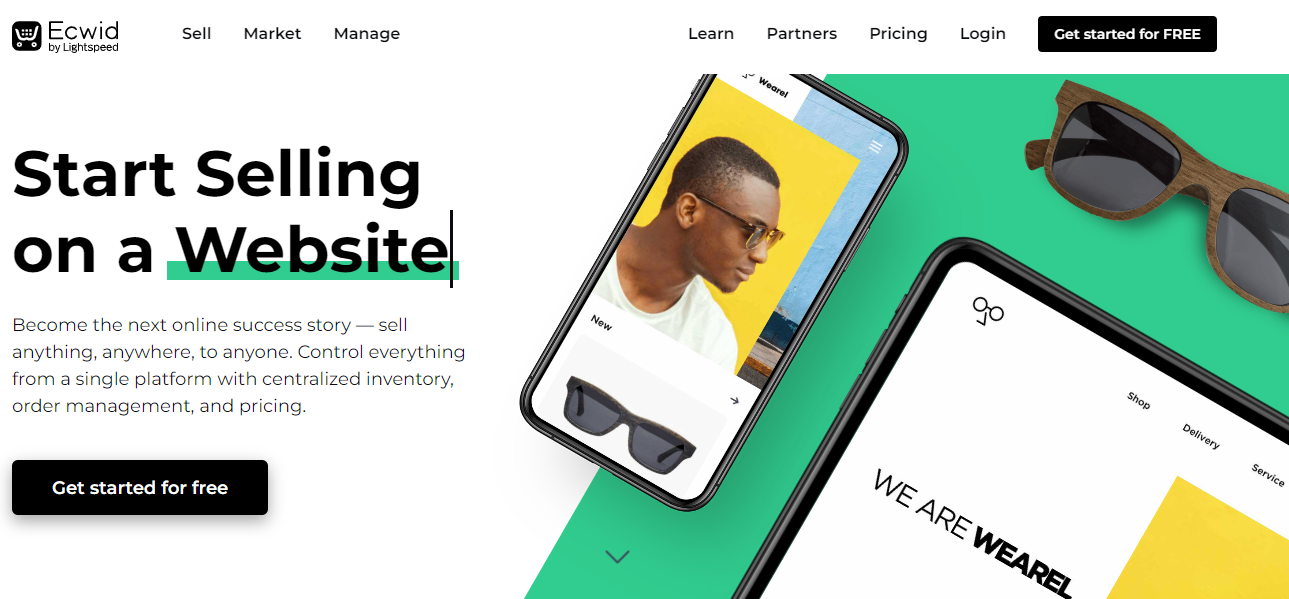The 5 Best Alternatives to Shopify in 2024
Are you looking for alternatives to Shopify and don’t know which one to choose? Explore our options to choose the best E-commerce platforms for small and medium businesses.
Shopify is currently one of the most popular and used online store creators in the world, but this does not mean that it is the most suitable option.
In this article, we compare the different alternatives to Shopify that exist on the market this year, what type of business they are aimed at, their advantages and disadvantages, and price.
List of best alternatives to Shopify
- WooCommerce + WordPress.org – The best overall open source Shopify alternative.
- Sellfy – Best for content creators.
- WIX eCommerce – The best website builder with built-in eCommerce capabilities.
- Ecwid – Focused on creating an online store in simple steps.
- Squarespace – Best alternative for artists and creatives.
Let’s look at the different alternatives to Shopify
1.Sellfy
If you are a content creator, Sellfy is the best alternative to Shopify to sell physical products, print-on-demand products, and digital products from one place.

Pros
- No transaction fees
- Best option for content creators
- Easy to use and configure
- Native integration of print-on-demand products
- 30-day money-back guarantee
Cons
- Limited web design
- Limited payment gateways (PayPal and Stripe only)
- Sales volume limits
Sellfy has the basic Shopify features, website builder and templates to design the front end of your website and payment gateway. It also has functions to manage your online store, such as inventory management tools, shipping and tax calculations for physical products.
Sellfy is geared toward content creators (such as artists, photographers, influencers, and music producers). On our list, Sellfy is the best alternative to Shopify for selling digital products and print on demand products in our opinion.
In fact, Sellfy is the only platform that offers a native integration with print-on-demand products (mugs, t-shirts or sweatshirts).
In case you didn’t know, printing on demand or Print on demand is a business model in which you sell personalized products, in which the supplier produces and ships the product for you. Similar to DropShipping in that you don’t have to purchase any inventory in advance.
👉 If you want to know more, visit our tutorial on Sellfy .
Price
Sellfy has three plans available: Starter, Business and Premium .
Payment plans start at $19/month. Be sure to check the annual sales volume limits before choosing a plan.
In case it doesn’t fit your business, Sellfy offers a 30-day money back guarantee. All plans have a 14-day free trial without the need to add a credit card.
2.WIX
WIX is one of the best website builders today and has built-in e-commerce features.
WiX eCommerce stands out for its number of eCommerce templates and design tools.

Pros
- Simple and easy to customize
- More than 500 eCommerce templates
- Design tools
- Support multiple payment gateways
- No transaction fees
Cons
- Does not have advanced features
- Support could be improved
The best of all is its simplicity. The website builder is intuitive, so it is easy to set up an online store from scratch.
There are hundreds of pre-designed eCommerce templates to choose from, for everything from electronics stores to fashion boutiques, online cafes, and more.
Once you’ve chosen a template, you can customize everything from the storefront to the product page, homepage, customer area and shopping cart.
WIX eCommerce allows you to add up to 50,000 products to your online store and use the integrated tools to manage your inventory. You can also define custom shipping rules, automate taxes, and much more.
When it comes to accepting payments, you can use the fully integrated WIX Payments payment gateway or select your own gateway from the WIX network of payment providers, including PayPal and Stripe.
WIX also comes with a couple of other free business tools, including a brand name generator and logo creator, in case you need to create your brand.
Prices
Business and e-commerce plans start at 9,50/month and include a free domain for 1 year. You can try it for free on a WIX sub-domain.
3.Woocommerce+ WordPress.org
Unlike other eCommerce platforms, WooCommerce is a plugin that provides eCommerce functionality and turns your WordPress website into an online store.

Pros
- Free ecommerce plugin
- Complete control over your online store
- Wide variety of eCommerce templates
- Manage your store from anywhere with the WooCommerce mobile app
Cons
- Greater difficulty and maintenance than Shopify
- Separate domain and web hosting
- Knowledge of WordPress is essential
In fact, WooCommerce is the most popular technology for creating online stores today.
Being based on WordPress (the most popular open source CMS), you have more control and flexibility than Shopify , but the tradeoff is that it is more difficult to configure and maintain over time.
If you are a person who is passionate about web development and being self-taught when creating websites and online stores, WooCommerce offers a large amount of resources, guides and documentation .
On the other hand, you also have dozens of WooCommerce templates with free plans to get started.
Price
Both WordPress and WooCommerce are completely free open source programs. However, you will have to pay for website hosting separately.
4.Ecwid
Ecwid easily creates your online store in just a few minutes, making it the preferred choice of more than 1.6 million companies to launch their online business around the world.
You can promote and sync your online store across various social platforms and manage everything on the go through its mobile app for Android and iOS.

Pros
- No transaction fees
- Integrations to sell your products
- Easy to set up for beginners
- Free lifetime plan
- Integration with the most popular payment methods
Cons
- You pay based on the number of products
- No support on the free plan
- Limited customization ability
Ecwid stands out by offering an e-commerce plugin that can be integrated into virtually any popular website builder.
This means you can add your Ecwid store to your existing website and turn it into a fully functional online store. Integrates with WordPress, Wix, Joomla, Squarespace, Weebly, Adobe Muse, Tumblr, and professional website builders.
You can promote and sync your online store across various social platforms and manage everything on the go through its mobile app for Android and iOS.
Altogether, Ecwid is a cloud-based e-commerce platform focused on small and medium-sized businesses with a free lifetime plan, no transaction fees, and a focus on syncing your products with social networks.
👉 Do you want to know more? Visit our analysis and opinions on Ecwid .
Price
Ecwid plans are based on the number of products you can sell in your online store.
It has a free plan that allows you to add only 10 products with access to limited features. Payment plans start at 14,08/month with the possibility of adding up to 100 products and integrating your online store with Facebook and Instagram, among other features to manage your products.
5.Squarespace Commerce
Squarespace is the best alternative to Shopify if you want to create a content-driven website. Unlike Shopify, it is not a dedicated e-commerce platform, but rather a general-purpose website builder with built-in e-commerce functionality.

Pros
- More free templates than Shopify
- E-commerce tools to manage your online store
- No transaction fees on the eCommerce plan
- 24/7 customer support
- Easy to customize
Cons
- There is no free plan for online stores
- eCommerce plan price similar to Shopify’s Basic plan, but with fewer features.
- Limited customization ability
At first glance, Shopify and Squarespace seem quite similar. Both allow you to create a website and sell products through it, without needing design or coding knowledge.
However, each platform has a very different target market. Squarespace was originally designed to be a general-purpose website builder. Therefore, it is used to make non-ecommerce websites such as blogs and service sites. Shopify, on the other hand, is an eCommerce solution.
Squarespace has the advantage when it comes to design and content management. And their website templates are second to none.
While Shopify has just over 10 free themes, Squarespace has dozens, where you can find templates focused on online stores. All templates come with pre-made design fonts and color palettes, and everything can be customized to fit your brand.
Squarespace is also ideal if you want to create a blog separate from your online store, with powerful SEO features to attract organic traffic to your online store.
It is packed with powerful features such as inventory management, tax and shipping tools, reviews, etc.
Squarespace has its own iOS app to track inventory, edit products, and connect with your customers while you’re on the go.
Another thing we like about Squarespace is how flexible it is. You can sell any type of product, including regular inventory, digital content, subscriptions (monthly or biweekly), and even manage offline in-person sales through the point of sale system.
Squarespace offers the best integrations with the most popular print-on-demand tools like Printful, so all you have to do is connect a third-party app and sell print-on-demand products.
Price
Squarespace plans for online stores (eCommerce Plan) start at 25/month, paying annually and with a 14-day free trial period.
The fact that the eCommerce plan is priced similar to Shopify’s basic plan, but with fewer features, makes us think that Shopify is still better than Squarespace in terms of price and features, so it will depend on your tastes about other aspects of the platform, such as its templates or use of its builder, to choose Squarespace over Shopify.
That’s it for our comparison of alternatives to Shopify for small and medium-sized business owners .
Remember that the perfect eCommerce platform for your business may be the one that fits the needs of your company, your budget and your skills to manage the online store.




